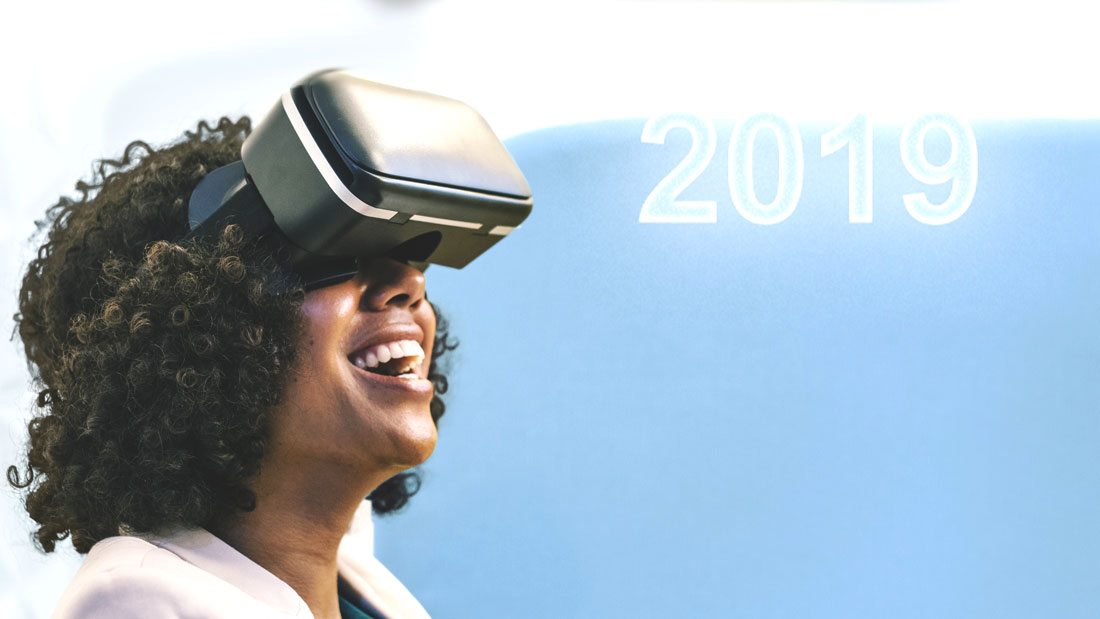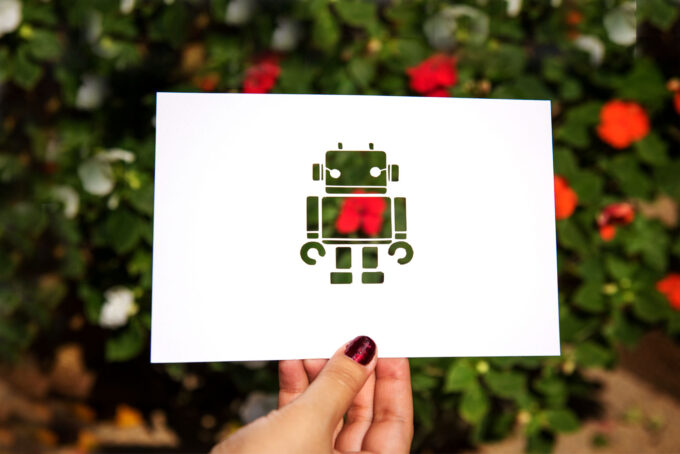
Digital Trends 2019: Which Issues are Going to be Important this Year?
In the blog post, we present a selection of trends and technological topics whose significance for libraries, information centres and open science is expected to increase in 2019.
by Birgit Fingerle

In 2019, artificial intelligence will continue to be one of the most significant issues in technology; it will also play a greater role in the entertainment industry. „AI Entertainment“ means, amongst other things, assistance from artificial intelligence in producing music and films. The use of artificial intelligence in education is also going to pick up pace in 2019: Using this technology, content can be better adjusted to the learner’s background, for example. In this context, questions concerning the ethics of AI (“ethical AI”) are growing in importance.

Once more, blockchain is one of the technology trends of 2019. Blockchain technology is serving as inspiration for the games and entertainment industry and will increasingly be integrated into traditional entertainment formats (Blockchain Entertainment). “Traceable transparency” is the name of one trend, whereby blockchain platforms provide customers with increased transparency by allowing them to track products. Blockchain is also being made use of in the “consumer-centric automation“ trend. Examples of this trend include responsive labels on bottles which enable customised interactions, bottles which allow music to be shared, and all-in-one product codes, which are personalised using blockchain, machine learning and the Cloud.
Blockchain technology is also being used to stimulate interaction and activity on community platforms. The trend is being referred to as “socialised blockchain” and could well be of interest in the context of open science.

Augmented reality, virtual reality and mixed reality are leading to new immersive experiences. Gartner assumes that 70 percent of businesses will be experimenting with these technologies by 2022. Traditional practices, rituals and myths are being transformed in augmented reality, thereby making it possible to present the past in a new form, and in a manner which suits the needs of today’s users better than ever before (augmented tradition).
Virtual reality promotes empathy and makes it possible to create tools for interacting with other people, for example in the realm of customer relations (functional empathy). As far as user interfaces are concerned, voice search and interactive chatbots will gain significance in 2019. Mobile augmented reality, voice and other interfaces are growing in importance in education. As contradictory as it may seem, ordering by SMS will gain significance for retailers in 2019. This trend has been dubbed “text commerce” .

Museums which align their concepts for exhibitions according to their suitability for Instagram, for example by cooperating with artists who have a large and youthful following will also play a role in 2019 under the trend name of “aesthetic exhibition”. “Contemporised history” is the name of another trend which is of particular interest for museums. By using modern technologies such as artificial intelligence, augmented reality and 3D printing, museums and other organisations can encourage interaction with exhibits, thereby bringing art history to life. With the help of new technologies, immersive museums and museums encouraging more interactivity are thus becoming increasingly widespread, achieving new levels of stimulation and involvement (museum futures).

Digitalisation is changing people’s expectations of physical spaces, as well as of physical products. Online and offline behaviour and experiences will continue to shape one another and physical and digital spaces will continue to merge in the worlds of work, consumption and in peoples’ private lives.

Technologies will also be increasingly entering the workplace, making it more intelligent and efficient. The “intelligent workplace” trend includes professional training manuals which are enhanced with augmented reality, smart workstations which help to make meetings more efficient and intelligent, such as Alexa-like workplace assistants. Gains in efficiency derived by from automation and artificial intelligence will induce companies to experiment with work schedules (new workanomics).

Open data and open source will gain even greater significance, particularly as their central role in innovation comes to be recognised. According to Gartner, by the end of 2020, the number of citizen data scientists will have grown five times as fast as the number of professional data scientists. Companies will seek out their support to fill gaps in their capacity for data analysis. At the same time, a large portion of data analysis tasks will be automated by augmented analysis tools, thus increasing productivity (augmented analytics).

Change in the media sector will also continue in 2019. The “mediavolution” trend is by no means limited to digitalisation. To a certain extent, printed materials are enjoying greater popularity.
Podcasts will also continue to play a big role in 2019. As they have come to enjoy such popularity, brand-name producers will increasingly move towards offering branded podcasts which provide interesting content, whilst not being intrusive with their advertising.
At the same time, the impact of social media on the psyche will be subjected to increasingly critical scrutiny, and a healthier, less stressful manner of interaction with social media will come into focus. “Social media wellbeing” is the term for this trend. In this context, it has also been pointed out that in 2019 too, users will increasingly be putting a focus on protecting their personal data. This is also being expressed in development of new products under the heading of “consumer champion tech” which take this need into account.

- The Future 100: 2019
- 2019 Trend Hunter Trend Report
- Top 20 Trends in 2019 Forecast – TrendHunter.com’s 2019 Trend Report
- Die 7 Content-Marketing-Trends 2019
- The technology trends for marketing
- The creative trends dominating mainstream and independent media
- 10 innovative technologies with potential impact for business
- 8 expert predictions on what will define tech in 2019
- 3 emerging technologies that will reshape education in 2019
- The most important IT trends of 2019
- The 21 biggest retail trends to look out for in 2019
- Top 10 Digital Transformation Trends for 2019
- Gartner Top Ten Strategic Technology Trends for 2019.
View Comments

A Self-Experiment in Fake Science: The Tricks of Predatory Journals
How do predatory journals work, and what needs to be done to place a publication...



